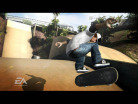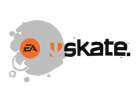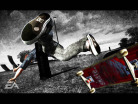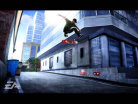- CLASSIC MAGAZINES
- REVIEW CREW
A show recapping what critics thought back
when classic games first came out! - NEXT GENERATION'S BEST & WORST
From the worst 1-star reviews to the best
5-stars can offer, this is Next Generation! - NINTENDO POWER (ARCHIVE)
Experience a variety of shows looking at the
often baffling history of Nintendo Power! - MAGAZINE RETROSPECTIVE
We're looking at the absolutely true history of
some of the most iconic game magazines ever! - SUPER PLAY'S TOP 600
The longest and most ambitious Super NES
countdown on the internet! - THEY SAID WHAT?
Debunking predictions and gossip found
in classic video game magazines! - NEXT GENERATION UNCOVERED
Cyril is back in this spin-off series, featuring the
cover critic review the art of Next Generation! - HARDCORE GAMER MAGAZING (PDF ISSUES)
Download all 36 issues of Hardcore Gamer
Magazine and relive the fun in PDF form!
- REVIEW CREW
- ELECTRONIC GAMING MONTHLY
- ELECTRONIC GAMING MONTHLY RANKS
From Mario to Sonic to Street Fighter, EGM
ranks classic game franchises and consoles! - ELECTRONIC GAMING MONTHLY BEST & WORST
Counting down EGM’s best and worst reviews
going year by year, from 1989 – 2009! - ELECTRONIC GAMING BEST & WORST AWARDS
11-part video series chronicling the ups and
downs of EGM’s Best & Worst Awards!
- ELECTRONIC GAMING MONTHLY RANKS
- GAME HISTORY
- GAME OVER: STORY BREAKDOWNS
Long-running series breaking down game
stories and analyzing their endings! - A BRIEF HISTORY OF GAMING w/ [NAME HERE]
Real history presented in a fun and pithy
format from a variety of game historians! - THE BLACK SHEEP
A series looking back at the black sheep
entries in popular game franchises! - INSTANT EXPERT
Everything you could possibly want to know
about a wide variety of gaming topics! - FREEZE FRAME
When something familiar happens in the games
industry, we're there to take a picture! - I'VE GOT YOUR NUMBER
Learn real video game history through a series
of number-themed episodes, starting at zero! - GREAT MOMENTS IN BAD ACTING
A joyous celebration of some of gaming's
absolute worst voice acting!
- GAME OVER: STORY BREAKDOWNS
- POPULAR SHOWS
- DG NEWS w/ LORNE RISELEY
Newsman Lorne Riseley hosts a regular
series looking at the hottest gaming news! - REVIEW REWIND
Cyril replays a game he reviewed 10+ years
ago to see if he got it right or wrong! - ON-RUNNING FEUDS
Defunct Games' longest-running show, with
editorials, observations and other fun oddities! - DEFUNCT GAMES QUIZ (ARCHIVE)
From online quizzes to game shows, we're
putting your video game knowledge to the test!- QUIZ: ONLINE PASS
Take a weekly quiz to see how well you know
the news and current gaming events! - QUIZ: KNOW THE GAME
One-on-one quiz show where contestants
find out if they actually know classic games! - QUIZ: THE LEADERBOARD
Can you guess the game based on the classic
review? Find out with The Leaderboard!
- QUIZ: ONLINE PASS
- DEFUNCT GAMES VS.
Cyril and the Defunct Games staff isn't afraid
to choose their favorite games and more! - CYRIL READS WORLDS OF POWER
Defunct Games recreates classic game
novelizations through the audio book format!
- DG NEWS w/ LORNE RISELEY
- COMEDY
- GAME EXPECTANCY
How long will your favorite hero live? We crunch
the numbers in this series about dying! - VIDEO GAME ADVICE
Famous game characters answer real personal
advice questions with a humorous slant! - FAKE GAMES: GUERILLA SCRAPBOOK
A long-running series about fake games and
the people who love them (covers included)! - WORST GAME EVER
A contest that attempts to create the worst
video game ever made, complete with covers! - LEVEL 1 STORIES
Literature based on the first stages of some
of your favorite classic video games! - THE COVER CRITIC
One of Defunct Games' earliest shows, Cover
Critic digs up some of the worst box art ever! - COMMERCIAL BREAK
Take a trip through some of the best and
worst video game advertisements of all time! - COMIC BOOK MODS
You've never seen comics like this before.
A curious mix of rewritten video game comics!
- GAME EXPECTANCY
- SERIES ARCHIVE
- NINTENDO SWITCH ONLINE ARCHIVE
A regularly-updated list of every Nintendo
Switch Online release, plus links to review! - PLAYSTATION PLUS CLASSIC ARCHIVE
A comprehensive list of every PlayStation
Plus classic release, including links! - RETRO-BIT PUBLISHING ARCHIVE
A regularly-updated list of every Retro-Bit
game released! - REVIEW MARATHONS w/ ADAM WALLACE
Join critic Adam Wallace as he takes us on a
classic review marathon with different themes!- DEFUNCT GAMES GOLF CLUB
Adam Wallace takes to the links to slice his way
through 72 classic golf game reviews! - 007 IN PIXELS
Adam Wallace takes on the world's greatest spy
as he reviews 15 weeks of James Bond games! - A SALUTE TO VAMPIRES
Adam Wallace is sinking his teeth into a series
covering Castlevania, BloodRayne and more! - CAPCOM'S CURSE
Adam Wallace is celebrating 13 days of Halloween
with a line-up of Capcom's scariest games! - THE FALL OF SUPERMAN
Adam Wallace is a man of steel for playing
some of the absolute worst Superman games! - THE 31 GAMES OF HALLOWEEN
Adam Wallace spends every day of October afraid
as he reviews some of the scariest games ever! - 12 WEEKS OF STAR TREK
Adam Wallace boldly goes where no critic has
gone before in this Star Trek marathon!
- DEFUNCT GAMES GOLF CLUB
- DAYS OF CHRISTMAS (ARCHIVE)
Annual holiday series with themed-episodes
that date all the way back to 2001!- 2015: 30 Ridiculous Retro Rumors
- 2014: 29 Magazines of Christmas
- 2013: 29 Questionable Power-Ups of Christmas
- 2012: 34 Theme Songs of Christmas
- 2011: 32 Game Endings of Christmas
- 2010: 31 Bonus Levels of Christmas
- 2009: 30 Genres of Christmas
- 2008: 29 Controls of Christmas
- 2007: 34 Cliches of Christmas
- 2006: 33 Consoles of Christmas
- 2005: 32 Articles of Christmas
- 2004: 31 Websites of Christmas
- 2003: 29 Issues of Christmas
- 2002: 28 Years of Christmas
- 2001: 33 Days of Christmas
- NINTENDO SWITCH ONLINE ARCHIVE
- REVIEW ARCHIVE
- FULL ARCHIVE
Skate
When my friends heard that I was reviewing Electronic Arts next generation skateboarding game, Skate, I was bombarded with one question: Is it better than Tony Hawk? This seemed to be the question on everybody's mind, and for good reason. Activision's Tony Hawk series has been going strong for nearly a decade now and there are a lot of gamers who are starting to feel a bit burned out on the over-the-top tricks and unrealistic environments. But Skate really isn't like Tony Hawk. Oh sure, both games are about the same thing, but it seems pretty clear that one game is a simulator while the other is pure arcade action. Or, to force an analogy, if Tony Hawk is Burnout Revenge, then Skate is Gran Turismo.
Perhaps that's for the best; the world really doesn't need another Tony Hawk rip-off. It's bad enough that we get a new Tony Hawk title every year; we really don't need another company making an extreme skateboarding game. Instead of giving us huge tricks, giant jumps and a cartoon world to skate through, Electronic Arts has delivered a realistic skateboarding game that will no doubt split the audience. I have a hunch that there will be a lot of gamers who really enjoy Skate's brand new take on the genre, while just as many will probably get bored and go back to waiting for Tony Hawk's Proving Ground.
The good news is that Skate is an excellent first stab at the skateboarding genre. Here is a game that manages to feel completely different from the competition and is unique enough to stand on its own. It is by no means a perfect game, but Skate proves that you can do new things with what feels like a tired sport.
In Skate you get to create your own character (who, for whatever reason, has to be a man) and take him out into the mean city streets to prove himself as the best skateboarder around. Although the game starts with a lengthy live-action cinema featuring about two dozen celebrity skaters, there really isn't a whole lot of time spent on the narrative side of Skate. From time to time you'll get text messaged new tasks, such as finding somebody who is looking to take some pictures of local skaters, somebody that wants to race, or somebody that wants to get you a sponsor. Ultimately it's your goal to get on the cover of the biggest skate magazines, earn some much-needed notoriety, and make your way to the X-Games.
Most of the challenges are set up for you to either impress a fellow skater or perform tricks that will land you in the pages of the skate magazines. Your average task will involve you finding a guy with a camera and then doing exactly what he says so that he can line-up the perfect picture. Other events include playing a game of S-K-A-T-E with a fellow pro skater, racing others down hills, and performing monster tricks on city landmarks. Most of these tasks are short, but they may take you several tries because of the way the game controls.
The biggest difference between Skate and the long-running Tony Hawk series is the way you control your character. While the Tony Hawk controls have you using the face buttons to perform tricks (ollies, grabs, etc.), Skate puts all of the controls on the two analog sticks. Your left analog stick is there to control your character, while the right analog stick gives you full control over your tricks. You will still be using the various face buttons and triggers when playing the game, but most of the tricks are done by moving the analog sticks in different directions.
In a lot of ways this control scheme makes sense, there's something exciting about learning how to pull off these moves and having to do something in order to make them work. Skate's trick system requires some skill on your part, so a good deal of this game involves you practicing your repertoire of moves before going into challenges. While there's certainly nothing wrong with simply pushing a button to perform your tricks in the Tony Hawk franchise, there's just something rewarding about pulling off a difficult move by moving around the analog stick.
So here's how it works: When you want to perform an Ollie (a jump) all you need to do is pull back on the right analog stick and then push forward. If you want to add a kickflip or heel kick you will push up and to the right/left. The longer you hold back on the analog stick the higher you'll jump, so it's to your benefit to hold back for the bigger lift offs. Of course, that's a very basic look at the trick system in Skate; the real game offers you dozens of moves all performed by using the analog stick. As you get better you will be rotating the right analog stick around and jamming it into weird angles, most of which works flawlessly.
I say "most" because there are certain moves that are almost impossible to pull off at the right times. The problem with the analog controls is that it's too easy to pull off the wrong move by accident, with so many tricks using similar stick flips you're bound to mess up your trick more than you would like. As you learn the controls you will minimize these problems, but no matter how long you play you'll never get rid of performing the wrong trick by accident 100% of the time. I can only hope that in future iterations Electronic Arts will make the way you pull off tricks a little more diverse so that we won't continue to have this problem.
One issue I have is that none of the tasks are all that much fun to play. Your typical mission will have you performing two or three things in the span of thirty seconds. For example, something you'll see a lot is the game asking you to perform at least one grind, one manual and score more than 1,500 points before time runs out. To be fair, this is the kind of thing a real life skater would do (albeit without the incentive of points), but these tasks just feel limiting and can be real frustrating as you have to run them perfectly before you can move on. The fact that there are so many events like this leads to some real burn-out when it comes to the single player experience.
By far the biggest issue facing Skate is not the "realistic" missions or the sometimes awkward controls, instead it's the fact that you can't get off your skateboard. For some reason Electronic Arts thought it was a good idea to keep your character constantly connected to the skateboard. This was not a good idea. Outside of the fact that this doesn't feel very realistic (even real life skaters use their feet to walk every so often), it has a tendency of making everything much more difficult than it should be. There are a lot of challenges where you're supposed to grind a specific rail or something, but lining it up is almost impossible because you're always on your skateboard. What's more, there are plenty of areas that would be much easier to access if you could get off your board, such as buildings that have stairs. Most of the frustration I had with the game came from not being able to get off my board and walk around, there's simply no reason why you shouldn't be able to line-up your tricks and walk up stairs in this game.
Despite these problems, Skate proves to be a solid skateboarding simulator. I think part of the problem is that a certain other franchise has really upped the ante for what to expect out of a single-player skateboarding experience. While I understand that Electronic Arts was trying to keep Skate as realistic as possible, I have to wonder if they've gone too far in one direction and in turn took a lot of the excitement out of the game. After all, at the end of the day this is a game we're playing, the most important thing is that it's fun to play. The story mode is a bit lacking when it comes to exciting things to do, but those who get into the look and feel of the game will no doubt have some fun with this single-player experience.
What saves this game from being just another frustrating simulator is the mostly interesting open world you are thrown into. While this is hardly the first skating game to feature a large open world, Skate does have the distinction of being one of the only skateboarding environments that feels authentic. The city is split up into several different connected locations, each giving off their own unique vibe. You start out in the Suburbs, but before long you will be able to skate around The Res, Old Town and Downtown. The city itself is fairly large and spread out, so you'll have plenty of interesting landmarks to trick off of no matter where you are. The problem with having such a realistic city is that there isn't the opportunity to pull off these huge over-the-top combinations that we see in other skateboarding games. The Tony Hawk world is designed from the ground up to have these large lines that are easy to follow and fun to do tricks on, the world of Skate is just not designed with that in mind.
One thing that is interesting about this take on the skateboarding genre is that you never actually improve your character as you play through the game. One of the staples of the Tony Hawk series is that you are always upgrading your character so that he/she will jump higher, grind better, skate faster and have an easier time pulling off the tricks. But in Skate the way you start is the way you'll ultimately finish. In some ways this is a novel approach, since the only person that improves their skills is the player. But at the same time, it's kind of frustrating that my character can't improve on the simple things (even if it's just a small boost in speed, grinding and pulling off tricks). You can, on the other hand, buy plenty of accessories and clothing items for your character.
When you're not buying accessories and practicing your moves in the single-player mode, you can always jump into an Xbox Live multiplayer game. When playing multiplayer you'll find that the city is split up into bite-size areas, which generally keeps the action a little more intimate and easier to follow. For the most part this isn't an issue, but there are some levels that are just too small for their own good. For example, if you play a six-player game in a residential pool then chances are things are going to devolve into chaos fairly quickly. Levels like that are just not meant to host that many players, and it's a real shame Electronic Arts didn't figure out a work around before shipping the game. The other problem I have with the online mode is that the options feel limited and none of the games are particularly interesting. Don't get me wrong, you can have a lot of fun playing this with your friends, but Skate has a long way to go before it reaches the same heights as some of the competition.
The one thing Skate has going for it is that it's a gorgeous game. Electronic Arts has gone out of their way to make this the best looking skateboarding game ever made. From the way the sun finds its path through the tree branches in the suburbs to the gloomy look and feel of Old Town, everything in Skate looks fantastic. Even more impressive is the animation, which at times looks eerily realistic. When you miss a trick you don't just fall down, you can see your legs scrambling to find the board and brace your fall. Players can even help gauge how successful their trick is going to be based on paying close attention to where the character's feet are on the board. This is definitely one of the best looking sports games I have ever seen; I can't wait to see how Electronic Arts plans on topping the look of this game.
It's also worth mentioning that the game's look is aided by an unusual camera angle. Instead of making the skater the focus, Electronic Arts decided to make the central character the skateboard. To do this they actually moved the camera down a bit so that you're always looking at the skateboard. At first this is a bit jarring, but it won't take long before you start to see the benefit of having the camera so close to the board. Because of where the camera is placed your character often looks like he's ten feet tall, throughout most of the game your skater will take up the entire screen (from top to bottom). Generally that's not a problem, but I would be lying if I didn't mention that he can get in the way of lining up some grinds and jumps. Minor gripes aside, I really enjoyed how different Skate looked.
I had a real hard time scoring Skate. While it's easy for me to pick the game apart and tell you all the things I didn't like about it, the truth is that I really enjoyed this brand new take on the skateboarding genre. Most of my critiques are based more on what the competition is doing and less on what EA attempted to bring to the genre. Electronic Arts is off to a good start with Skate and I definitely hope they continue with it and make it an even better game next time around. If you've been looking for an alternative to the Tony Hawk games then this is it, just don't go in expecting this to be the same kind of over-the-top arcade sports game that the Activision series is known for. And in a lot of ways that's a good thing.
HOME |
CONTACT |
NOW HIRING |
WHAT IS DEFUNCT GAMES? |
NINTENDO SWITCH ONLINE |
RETRO-BIT PUBLISHING
Retro-Bit |
Switch Planet |
The Halcyon Show |
Same Name, Different Game |
Dragnix |
Press the Buttons
Game Zone Online | Hardcore Gamer | The Dreamcast Junkyard | Video Game Blogger
Dr Strife | Games For Lunch | Mondo Cool Cast | Boxed Pixels | Sega CD Universe | Gaming Trend
Game Zone Online | Hardcore Gamer | The Dreamcast Junkyard | Video Game Blogger
Dr Strife | Games For Lunch | Mondo Cool Cast | Boxed Pixels | Sega CD Universe | Gaming Trend
Copyright © 2001-2025 Defunct Games
All rights reserved. All trademarks are properties of their respective owners.
All rights reserved. All trademarks are properties of their respective owners.





























